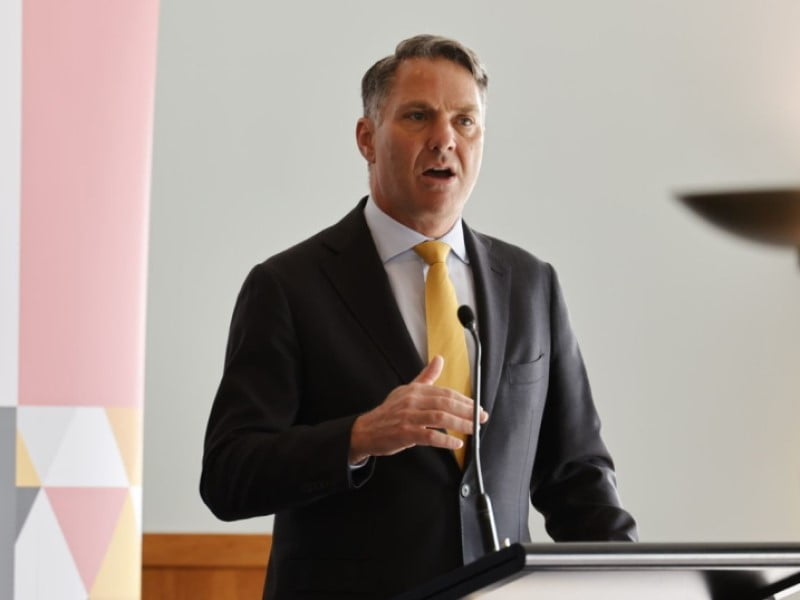Defence minister Richard Marles says the concept of minimum viable capability will play an increasingly important role in bringing cutting-edge technologies and asymmetric advantage to the military.
Mr Marles spoke of the changing buying “philosophy” within the Australian Defence Force following an address to the Sydney Institute that foreshadowed a greater focus on smaller, more “nimble” platforms and capabilities.
The comments came as he warned of further cuts and delays to major Defence projects in the federal Budget next month, building on changes to other projects last year aimed at freeing up funding.
“When you put additional bells and whistles on any given platform it comes with cost, increased design, and greater risk in terms of time blowout,” Mr Marles said on Thursday night.
“And so, if you want to deliver things on time and on budget, the right philosophy is minimum viable capability. It’s really about how we think about it and in a sense the job we therefore ask our folk to do.”

“We need to be more nimble, particularly in the way in which we are dealing with small and medium companies and, if you’d like, smaller projects and capabilities which are not of the same order of magnitude in terms of dollars, but can be clearly really impactful.”
The need to embrace minimum viable capability was first outlined in last year’s Defence Strategic Review, which also brought about the Advanced Strategic Capabilities Accelerator that replaced Defence’s industry-facing innovation programs.
In reforming the capability acquisition process, which the review described as “not fit for purpose”, the government sought to “achieve more timely and relevant capability outcomes in response to… strategic circumstances”.
Defence Industry minister Pat Conroy has previously said the minimum viable capability concept would see platforms that are 80 per cent complete accepted into service, with the remaining 20 per cent of work to be finished on the march.
Defence is currently supporting a range of projects that are yet to reach the minimum viable capability waypoint, including a 11-metre-long autonomous subsea drone developed by Melbourne-based C2 Robotics.
On Thursday, Mr Marles said the Russia-Ukraine War had shown the impact that small, inexpensive capabilities can have against one of the largest militaries in the world, without mentioning any particular technologies.
“One of the things that we have seen play out in Ukraine is just how potent asymmetric capabilities can be,” he said, adding that “very cheap platforms are having devastating impact on very expensive platforms”.
“So, it’s that asymmetry which is leading us all to think: what is the kind of full breadth of capability that we need to bring to bear?”
Mr Marles added that while nuclear-powered submarines will still and “incredibly important” part of Australia’s warfighting capability, particularly “in terms of our ability to project power”, the experience in Ukraine was “turbocharging… how we think about warfare”.
“There’s a whole suite of smaller platforms, which are actually quite cheap, a lot of them in the autonomous domain, which can have great potency. That is a bit of a new frontier,” he said on Thursday night.
Mr Marles also used his speech to outline “tough, but necessary, decisions to divest, delay, or re-scope projects” in the Budget, even as Defence spending climbs to 2.4 per cent of Gross Domestic Product by 2023-24.
“In some years in the forward estimates that overprogramming reached 30-40 per cent. That means that for every $100 Defence had to spend it was planning to spend $140. Or in other words, more than a quartered of what Defence had planned to buy or deliver, it had no money for,” he said.
The decision is on top of the government’s decision to reduce the number of infantry fighting vehicles, with Mr Marles stressing the Defence budget inherited by the government was “at historically high levels of over-programming”.
“This reprioritisation will enable the government to accelerate projects that will have the greatest impact on our strategic objectives to deter any potential adversaries from actions against our interests,” he added.
Do you know more? Contact James Riley via Email.

